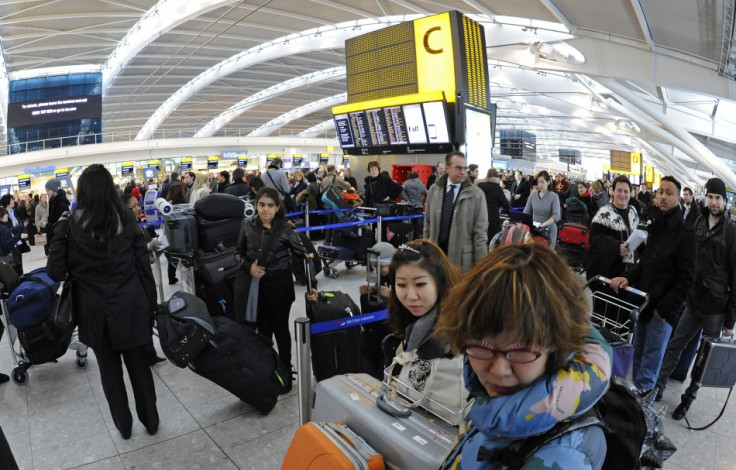Heathrow Traffic Hits Record 70 Million to Build Third Runway Pressure

Heathrow Airport has reached an all-time high in yearly passenger numbers travelling through the third busiest airport in the world, putting further pressure on the government to rethink its stance of not allowing a third runway to be built.
Both Conservatives and the Liberal Democrats in the coalition government agreed to scrap plans for another runway at Heathrow shortly after the 2010 general election, favouring improved road and rail links across the country, but ever-increasing pressure on Heathrow's capacity and weak economic growth may cause political leaders to think again.
There were 70 million passengers travelling through Heathrow over the last 12 months, according to airport operator BAA's most recent traffic figures.
"Reaching 70 million passengers at Heathrow is a major milestone, demonstrating the resilience of the airport in an otherwise challenging economic environment," BAA chief executive Colin Matthews said.
"Increases in load factors drove this; however, Heathrow continues to operate at 99.2 percent capacity - placing constraints on airlines' ability to introduce new flights to the emerging economies, which are so vital to UK economic growth."
In March alone, Heathrow had 5.7 million passengers pass through its terminals, 6.9 percent more than during the same month in 2011.
Senior government ministers are rumoured to be pushing for a U-turn on the coalition's shelving of plans for a third runway, amid fears that the lack of sufficient airport capacity in London and the southeast will hinder the UK's economic recovery.
It makes the UK look less attractive to much-needed foreign investors, like the Chinese, and could drive their business elsewhere, proponents of the third runway argue.
Many London MPs and London Mayor Boris Johnson, a Conservative, are opposed to another runway because of environmental and safety fears over having more air traffic above the capital.
© Copyright IBTimes 2024. All rights reserved.






